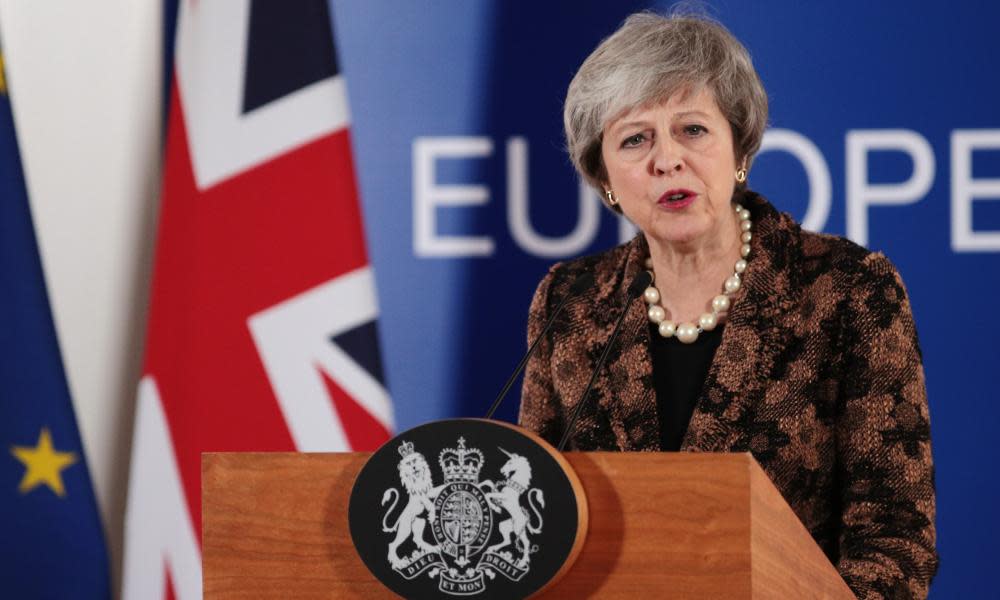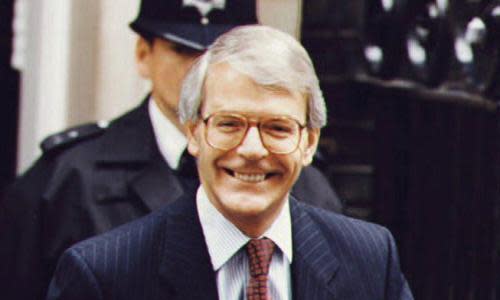Things are so bad Theresa May makes John Major look like Caesar

It comes to something when John Major looks like a titan of leadership compared with the prime minister of the day. But when we recall how Major repeatedly faced down his Eurosceptic rebels, dared them to challenge him for the leadership, and willingly turned votes in parliament into votes of confidence in his premiership, Theresa May makes him look like Caesar Augustus. And there is one timely comparison with Major that does May absolutely no credit, and helps explain the total mess she and her party now find themselves in.
It was 24 years ago this very month that Major’s government was defeated in the House of Commons over their plans to increase VAT on domestic fuel and power to 17.5%, a narrow loss of 311 votes to 319, even though Major was able to rely on the support of serial Maastricht rebels like Bill Cash, Bernard Jenkin, John Redwood and Iain Duncan Smith – all now thorns in May’s side. But to Major’s great credit, at least he had the guts to go through with that vote, knowing that the central plank of his government’s 1994 budget faced defeat, and that his loss would mean a massive victory for the New Labour leadership of Tony Blair and Gordon Brown.
And equally, to his own credit, Kenneth Clarke – then the chancellor – did not say he would go and have a think about the result. He did not say it was his budget or no budget at all. He did not rush around Britain’s energy companies the next day asking for assurances that they would not pass on the VAT increase. Instead, he stood up after losing the vote and said: “It is only right that we should listen to the views expressed” by parliament. He accepted his original budget was dead, and he returned to the House of Commons just two days later with a new set of proposals.

So on that occasion Major’s government listened to the debate, held the vote, accepted the will of the House of Commons, scrapped the budget, and came back with a new one. Humiliating and damaging as it was, it was the only right way to proceed. Whereas this week, we have seen May listen to the debate on Brexit, panic, scrap the vote, and now openly defy the will of the House of Commons by persisting with a deal for which she does not – and never will have – a mandate, all the while dragging us closer by default to the unthinkable and unacceptable outcome of a no-deal Brexit.
The night that Major lost the VAT vote, Blair issued a statement in response, saying: “This is a government that has lost control of events, lost control of its backbenches and is no longer able or fit to govern. For months they have been lurching from one crisis to another, and now they have been tipped over the brink.”
It is tempting to look at May’s government today and to use the phrase of which she is so fond: “Nothing has changed! Nothing has changed!” But unfortunately it has, because what we are seeing today is far worse than Major’s government. In him, at the very least, we had a prime minister who had the courage to ask MPs to vote on his policies, and the sense of democratic responsibility to accept their verdict. In May we have neither. Just a prime minister playing parliamentary tricks, pushing our unwritten constitution to the very limit, all in an effort to cling on to one more week, month or year of power, all to no apparent purpose. It would be utterly pathetic, were the consequences for our country not so massively serious. It is time for her to go.

 Yahoo News
Yahoo News 
